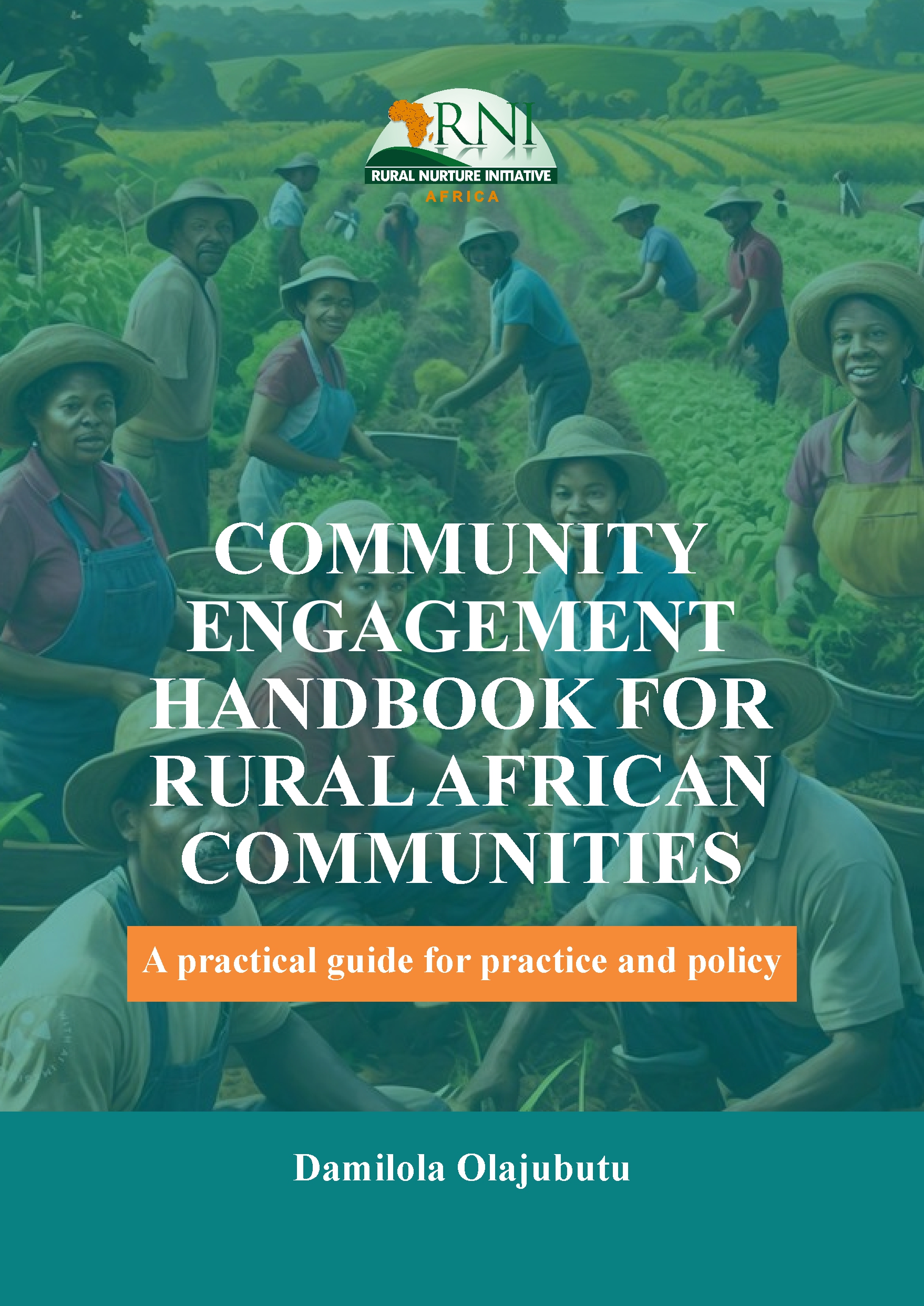Rural
Voices, Dreams, and Sustainable Futures
Hope
One Community, One Initiative at a Time
Change
Through Advocacy, Research, and Strategic Partnerships
is Rural
Join Us in Reimagining Rural Development in Africa
Community Engagement Handbook for Rural African Communities: a practical guide for practice and policy
Read more



Rural Nurture Initiative (RNI)
Rural Nurture Initiative (RNI) is a social impact organization advancing community-centered rural development across Africa. We drive sustainable change through grassroots empowerment, evidence-based research, and inclusive policy advocacy.
Working hand-in-hand with communities, we empower people, build local capacity, and nurture resilient rural ecosystems. Our work spans climate-smart agriculture, food security, economic empowerment, health, water sustainability, gender equity, and youth development, creating lasting pathways for rural prosperity in Africa.
OUR ENGAGEMENTS
We believe that rural communities aren't just beneficiaries of development—they are the architects shaping it.
Outreach
Empowering rural people and creating ecosystems where rural communities can lead their own change
Rural Capacity Building Institute
Building Leadership and Institutional Strength in Rural Africa
Rural Research and Policy Lab
Bridging Evidence and Action for Rural Transformation across Africa
Rural Innovation and Research Fund
Supporting Community-Led Solutions and Rural Knowledge Creation
Rural Africa Development Conference (RADeC)
Shaping the Future of Rural Development in Africa
African Rural Development Network (ARDN)
Connecting Leaders, Knowledge, and Practice
We empower rural communities not just as beneficiaries but active participants in their own developmental narrative.

Agriculture remains the backbone of rural livelihoods. Your donation will help empower rural farmers for…
Notice: Test mode is enabled. While in test mode no live donations are processed.
Your donation will help us create diverse pathways to sustainable livelihoods for rural residents.
Notice: Test mode is enabled. While in test mode no live donations are processed.
When health systems fail in rural areas, entire communities suffer. Join us in making a…
Notice: Test mode is enabled. While in test mode no live donations are processed.
Support us in Bridging Evidence and Action for Rural Transformation
Notice: Test mode is enabled. While in test mode no live donations are processed.
Support Us in Building Leadership and Institutional Strength in Rural Africa
Notice: Test mode is enabled. While in test mode no live donations are processed.
Join us in Supporting Community-Led Solutions and Rural Knowledge Creation
Notice: Test mode is enabled. While in test mode no live donations are processed.
Join us in Shaping the Future of Rural Development in Africa
Notice: Test mode is enabled. While in test mode no live donations are processed.
Your consistent support makes a lasting difference. By subscribing to give regularly, you help us…
Notice: Test mode is enabled. While in test mode no live donations are processed.
Support Us in Connecting Leaders, Knowledge, and Practice Across Rural Africa
Notice: Test mode is enabled. While in test mode no live donations are processed.
Your generosity directly fuels rural transformation by supporting community-led development initiatives across Africa.
Notice: Test mode is enabled. While in test mode no live donations are processed.

We believe that lasting rural transformation requires addressing four interconnected pillars
The opportunities around you to shape you, sharpen your gifts, and prepare you to do.
A collection of organizational resources that are geared to accomplish a goals.

We believe that lasting rural transformation requires addressing four interconnected pillars
The opportunities around you to shape you, sharpen your gifts, and prepare you to do.
A collection of organizational resources that are geared to accomplish a goals.
Together, we can create a future where rural communities thrive as centers of innovation, prosperity, and opportunity.
Be Part of the Change!
Become a catalyst for rural transformation by joining our dedicated volunteers in creating lasting impact in communities that need it most.
Your generosity, whether a one-time gift or monthly commitment, directly fuels rural transformation by supporting community-led development initiatives across Africa.
We forge powerful alliances with organizations sharing our vision and passion, achieving extraordinary outcomes together. Join us in building a more equitable rural futures.
Latest Events & Programs
What People Say About RNI





Community Engagement Handbook for Rural African Communities: a practical guide for practice and policy
Read more




